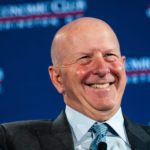Despite Japan’s standing as Asia’s most popular market, some voices are cautioning against excessive optimism. According to a Bank of America Corp. survey, 59% of Asia’s fund managers are overweight on Japanese equities, with India trailing at a distant 18%. The enthusiasm stems from the Nikkei 225 and Topix indexes reaching their highest levels in 34 years, coupled with a weak yen and a return of inflation.
However, HSBC Holdings Plc and Societe Generale SA strategists have taken a contrarian stance, suggesting that the market has surged too far and it’s time for investors to start securing profits. Concerns also arise over the yen’s volatility, influenced by Japan’s negative rates and speculation about the Bank of Japan possibly ending this policy in the current year.

Herald van der Linde, Head of Asia Equity Strategy at HSBC in Hong Kong, expressed caution, stating, “I will be careful in this market.” He noted that the market is already well-positioned, and much of the positive news has been factored in. HSBC holds an underweight rating for Japan stocks.
Technical indicators support this view, with the Topix showing signs of overheating, reaching its highest relative strength index since May. The last time it breached the overbought threshold in September, the market experienced a 9% decline. Some market watchers caution that Japanese stocks may become a crowded trade.
HSBC forecasts the Topix to end the year at 2,460, indicating a 1.3% decline from current levels. Societe Generale expects the Nikkei 225 to fall to 32,500 by the end of June, an 8% decline.
Investment professionals such as Michael Dyer of M&G Investments and Kelvin Leung of Robeco Hong Kong Ltd. share a similar sentiment, emphasizing that the recent rally appears momentum-driven and overheated. Leung notes the narrow focus of the rally on large-cap, tech, and auto sectors.
The potential divergence in interest rate policies between the US Federal Reserve and the Bank of Japan is a key factor considered by Societe Generale, leading the firm to reduce its Japanese stocks allocation. Frank Benzimra, Head of Asia Equity Strategy at Societe Generale, acknowledges the less attractive risk-reward profile due to excessive yen movement.
JPMorgan Private Bank also monitors the yen’s appreciation as a risk to investments, emphasizing its role in driving upside gains through depreciation relative to the dollar.
Despite the cautionary views, the majority sentiment remains bullish, with predictions of further gains. Toshio Morita, Chairman of the Japan Securities Dealers Association, envisions the Nikkei rising to between 42,000 and 43,000 this year. Efforts to enhance corporate valuations and policies like the Tokyo Stock Exchange’s capital improvement directive contribute to the positive outlook.
Investors surveyed by Bank of America in January anticipate double-digit returns in the next 12 months, indicating sustained optimism in the market. While some have reduced exposure, others, like Mitsubishi UFJ Asset Management’s Kiyoshi Ishigane, remain optimistic about the long-term fundamentals of Japanese stocks.









